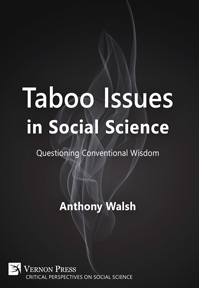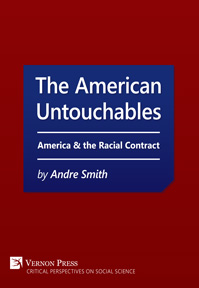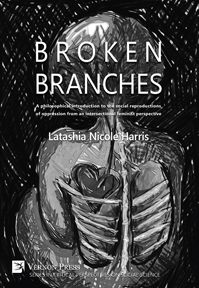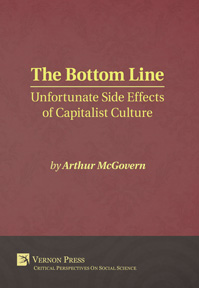Search
Browse
by Publication status
by Subject
Anthropology (26) Art (171) Business and Finance (38) Cognitive Science and Psychology (63) Communication and Journalism (50) Economics (116) Education (71) History (167) Human Geography (23) Interdisciplinary (43) Language and Linguistics (178) Law (15) Music Studies (18) Philosophy (222) Political Science and International Relations (127) Sociology (399) Statistics and Quantitative Methods (21)by Series
Series in Literary Studies (62) Series in Philosophy (57) Series in Education (49) Series in Sociology (42) Series in World History (31) Series in Politics (30) Bridging Languages and Scholarship (25) Series in Language and Linguistics (25) Cognitive Science and Psychology (20) Series in Philosophy of Religion (20) Series in American History (19) Series in Art (19) Critical Perspectives on Social Science (16) Series in Cinema and Culture (16) Curating and Interpreting Culture (15) Series on the History of Art (14) Series in Anthropology (13) Economics (13) Series in Business and Finance (12) Series in Critical Media Studies (12) Series in Music (12) Series in Performing Arts (9) Philosophy of Personalism (8) Series in Communication (8) Series in Law (8) Series in Economic Methodology (7) Series on Climate Change and Society (7) Classics in Economics (6) Series in Economic Development (6) Women's Studies (6) Philosophy of Forgiveness (5) Series in Built Environment (5) Series in Economic History (5) Series in Philosophy of Science (4) Series in Social Equality and Justice (4) Series on the History of Science (4) Serie en Sociología (3) Series in Contemporary History (3) Series in Creative Writing Studies (3) Series in Design (3) The Interdisciplinary Built Environment (3) Series in Heritage Studies (2) Series in Innovation Studies (2) Serie en Ciencias Políticas (1) Serie en Comunicación y Medios (1) Serie en Entorno Construido (1) Serie en Estudios Culturales (1) Serie En Estudios Literarios (1) Serie en Filosofía (1) Serie en Música (1) Series in Classical Studies (1) Series in Economics of Technological Change (1) Series in Urban Studies (1)by Language
English Spanishby Author
Browsing with filters
Taboo Issues in Social Science
Questioning Conventional Wisdom
Anthony Walsh, Boise State University
Availability: In stock
310pp. ¦ $78 £70 €75
This book is an expedition into a number of controversial issues in the social sciences with the intention of challenging the conventional wisdom on those issues. While most social science research is interesting and important, a fair amount of social science research is thinly disguised advocacy research in which conclusions too often precede inquiries. The primary topics are those that the journal Nature described as "Taboo". In order of the degree of censure, the topics are: race, sex differences, intelligence, and violence. The only way to examine these topics with the social science seal of approval attached is through a strictly environmental lens. To bring biological factors to bear on them is politically incorrect and can bring the wrath of the academy down on one’s head. Although many researchers successfully bring biology into their research on these issues, they are said to risk career and reputation for doing so. Speech codes stifling free intellectual exchange pervade the ivory tower, and an overwhelmingly liberal faculty hell-bent on eliminating any vestiges of opposition to their ideology. This is unconscionable in an institution that is supposed to value free exchange of all ideas and opinions. The current state of academic social science is examined before entering the substantive realm to try to explore how the topics I explore have become protected from any claims of "naturalness." Because the left rejects the idea of human nature, it insists that these things are products of social learning and/or social construction and are entirely fluid. To maintain this position in light of the huge and exponential successes of the natural sciences, the left embraces such frames of reasoning as postmodernism, radical relativism, multiculturalism, and political correctness, all of which are examined in this book. Also discussed are human nature, whiteness studies, political temperaments, various criminal justice issues, and capitalism versus socialism.
The American Untouchables: America & the Racial Contract
A historical perspective on race-based politics
Andre Smith, Harris Stowe State University
Availability: In stock
196pp. ¦ $60 £52 €58
The issue of race is often a scab Americans choose to ignore. However social science has a responsibility and an obligation to examine not simply the amenable subjects but also the controversial. This work, in a word, is controversial. Thomas Franks (2004) argued that cultural differences led white Kansans to abandon the Democratic Party for the Republican Party during the 1980s. He specifically argued that abortion was the unifying issue in this ideological migration. Simultaneously, future President Ronald Reagan opened his campaign for the presidency in Philadelphia, Mississippi, the sight of the massacre of four young civil rights activists over a decade earlier. Race has and is a factor in the American experience; Franks’ premise is simply that the absence of the concentration of African Americans in the Kansas area negated the influence of the “black threat hypothesis” on the observed ideological switch of white Kansans. This work argues that Franks’ premise fails to incorporate the over arching ideological switch of white voter migration to the Republican party that was occurring during the same period, and that Reagan’s speech in Philadelphia, Mississippi was an overt cue that he was rejecting the civil rights consensus for an historically established “race-based social contract” that positioned people of color outside the traditional bounds of the social contract. The study is a sociopolitical analysis of the African American experience utilizing the “racial contract” framework developed by Charles Mills. The “racial contract” holds that the social contract explicitly dictates interactions and transaction costs between citizens and government. Mills supposition is that historically non-Western Europeans were excluded from the penalties for violations of the social contract, and a tacit race based contract dictated transaction costs and interactions between Europeans and non-Europeans. The work utilizes the framework to trace the sociopolitical environment from the first appearance of Africans in America to the present. It has the supposition that the initial sociopolitical status of Africans in America was as a result of the reformation of the Western feudal agrarian culture, with African captives attached to the land as the neo-serfs; but that the reformation of feudalism was only possible within the context that Africans were implicitly viewed as outside the bounds of the codified social contract. It traces American sociopolitical conflict over the expansion of the “racial contract,” which was the basis of the American Civil War; and the establishment of an implicit sociopolitical order within the bounds of the racial contract at the end of the Civil War, with codified sanctions for violations of commensality and endogamy.
Broken Branches
A philosophical introduction to the social reproductions of oppression from an intersectional feminist perspective
Latashia Nicole Harris, University of Portland
Availability: In stock
192pp. ¦ $55 £48 €53
Broken Branches places a critical lens on the infrastructure, institutions, social processes and practices that govern our society. The text examines the ways that neoliberalism influences society and our lives across generations. The practice of colonialism is deconstructed, showing how this practice has been renamed, but holds steadfast to its original intention of cultivating institutionalized oppression that feeds social perception. The author exposes the ways that social perceptions, juxtaposed semantics, commonly accepted definitions, practices, rhetoric and propaganda create products of maintained systemic injustice when resistance is absent and desensitization is prevalent. Colonialism and its consequential social reproductions of oppression continue to traverse across land, body, and mind in individual as well as collective contexts. Broken Branches explores the tributaries of oppression but also highlights the source of oppression within the United States. The philosophical, intersectional and feminist approach of critical analysis lays the framework for further interrogation and utilizes the catalyst of historical precedence to initiate this introduction. The author implores the reader to take introspective steps towards understanding where one’s own complicity exists in oppression as well and addresses the cognitive dissonance we have become accustomed to in perpetuating oppression. Broken Branches offers suggestions on how to forge forward to create substantive and structural change that is not contingent on the dispossession and oppression of the marginalized so that the health and vitality of a few is sustained. Broken Branches encourages the practice of continuous inquiry and acknowledges that transformation is not possible without change. The author pushes for collectively empowered marginalized voices, operationalized pathways to inclusion, intersectional and equitable perspectives, and an increased investment in healing the trauma caused by the perpetuation of colonialism.
The Bottom Line: Unfortunate Side Effects of Capitalist Culture
Arthur McGovern, Nichols College
Availability: In stock
212pp. ¦ $50 £38 €45
This monograph explores the role of culture in modern societies and the side effects that result when that role is distorted. The basic premise of this book is that many of the dominant cultural characteristics of modern life, like the ideologies and values associated with materialism and consumer capitalism, are cultural phenomena with influences that are in many ways problematic and in some ways downright detrimental to our sustained societal well-being. I argue in this book that the globalized capitalist economic system has become increasingly efficient in terms of scale and scope, but has also become less humane in many regards; less connected to human needs and concerns. Of particular concern is the encroachment of economic interests into areas of human society that traditionally have been free from profit motives, or at least only minimally influenced by them; areas such as scientific research, the justice system, and even family relationships. I suggest that there is a slow but steady intrusion into these areas of human life that were once considered off-limits to naked economic incentives and calculations. This intrusion puts the idea of America as a free and democratic society increasingly at risk when private economic stakeholders meddle in the political and cultural areas of society in ever more insidious ways to further their own enrichment at the expense of the public. Furthermore, the vast capitalist economic system is in many ways increasingly disconnected or disembedded from the contexts and regulations of traditional social relations as in the past.
Intervention or Protest
Acting for Nonhuman Animals
Edited by
Andrew Woodhall, University of Birmingham
and Gabriel Garmendia da Trindade, University of Birmingham
Availability: In stock
410pp. ¦ $75 £58 €68
Within current political, social, and ethical debates – both in academia and society – activism and how individuals should approach issues facing nonhuman animals, have become increasingly important, ‘hot’ issues. Individuals, groups, advocacy agencies, and governments have all espoused competing ideas for how we should approach nonhuman use and exploitation. Ought we proceed through liberation? Abolition? Segregation? Integration? As nonhuman liberation, welfare, and rights’ groups increasingly interconnect and identify with other ‘social justice movements’, resolutions to these questions have become increasingly entangled with questions of what justice and our ethical commitments demand on this issue, and the topic has become increasingly significant and divisive. The book considers how this question, and contemporary issues facing nonhumans (such as experimentation, hunting, and factory farming) should be answered by drawing on both theory and practice in order to provide grounded, yet actionable, ways forward. Indicatively, the book covers topics such as: • The intersection between interspecies ethics and the ethics of war and self-defence • Nonhuman animals as political subjects and acting agents • Whether we should intervene for nonhuman animals in cases of natural disaster • Various explorations of why the nonhuman movement may not be succeeding as well as it could be • Comparisons between the nonhuman movement and other social movement • Arguments for and against intervening to help or save nonhumans, and how far we may go • What intervention could ultimately mean for nonhumans The book is therefore intended not only to provide new and interesting insight into the area and important contemporary discussions, but also to constructively aid the nonhuman movement and unite theory and practice on the crucial issues. With the nonhuman movement and its past approaches currently being questioned as a success, more nonhumans than ever being harmed and exploited, and a growing gulf between activists and scholars, this book will not only be a timely addition to the literature, but an attempt to bridge these gaps and move both theory and practice – and thus the movement and field – forward.






